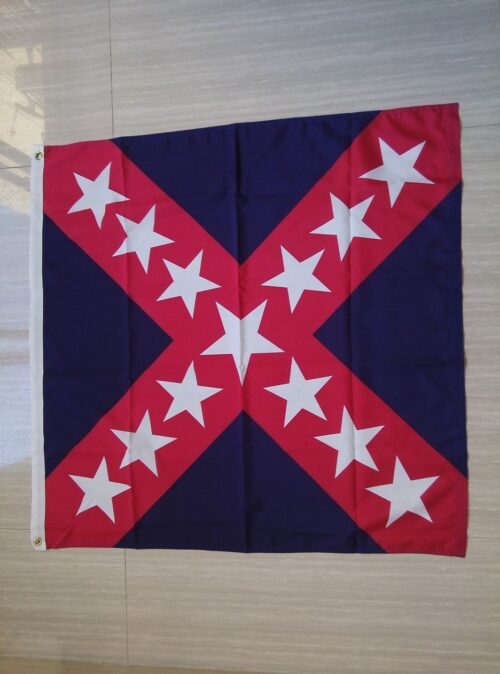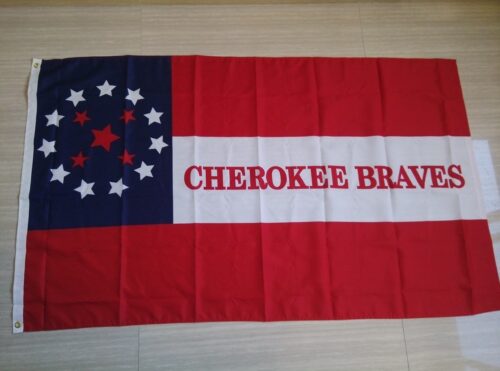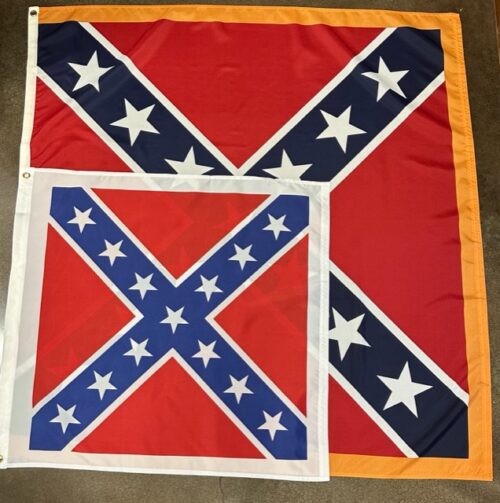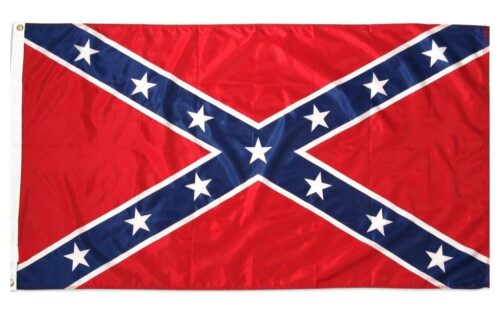-
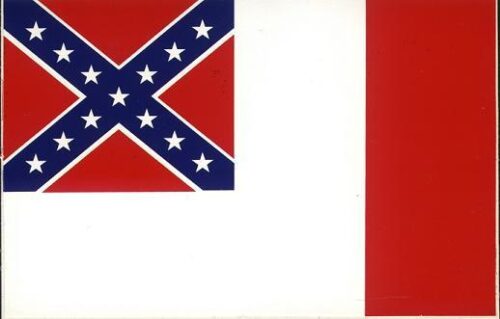 3rd National Flag originally adopted to replace the "Stainless Banner" on March 4,1865. This was also reverently called the "Blood Stained Banner". Standard 3'x5' polyester with 2 grommets or Large 5'x7.5' G-Spec super polyester with 3 grommets and 4 rows of stitching on the end for long life outdoor wear.
3rd National Flag originally adopted to replace the "Stainless Banner" on March 4,1865. This was also reverently called the "Blood Stained Banner". Standard 3'x5' polyester with 2 grommets or Large 5'x7.5' G-Spec super polyester with 3 grommets and 4 rows of stitching on the end for long life outdoor wear. -
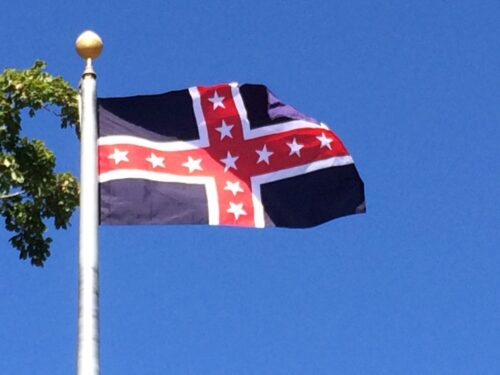 Polyester 3'X5'. General Leonidas Polk was the Episcopalian Bishop of Louisiana, a Confederate Lt. Gen. and Corps Commander in the Army of Tennessee. Killed during the Atlanta Campaign of 1864, the entire Army of Tennessee mourned his death. This distinctive design consisting of white and red Crosses of St. George on a royal blue flag was carried by the regiments in the Polk Corps.
Polyester 3'X5'. General Leonidas Polk was the Episcopalian Bishop of Louisiana, a Confederate Lt. Gen. and Corps Commander in the Army of Tennessee. Killed during the Atlanta Campaign of 1864, the entire Army of Tennessee mourned his death. This distinctive design consisting of white and red Crosses of St. George on a royal blue flag was carried by the regiments in the Polk Corps. -
 This is a collection of war letters written by teenagers George and Walter Battle during their service in Company F, 4th North Carolina Regiment, CSA. Underage, yet full of vitality and idealism, these boys were not just fighting for their country; they were fighting to protect their family's name. Two young brothers had gone off to war as mere boys. Their experiences quickly hardened and molded them into veterans of the greatest army ever to march on American soil.
This is a collection of war letters written by teenagers George and Walter Battle during their service in Company F, 4th North Carolina Regiment, CSA. Underage, yet full of vitality and idealism, these boys were not just fighting for their country; they were fighting to protect their family's name. Two young brothers had gone off to war as mere boys. Their experiences quickly hardened and molded them into veterans of the greatest army ever to march on American soil. -
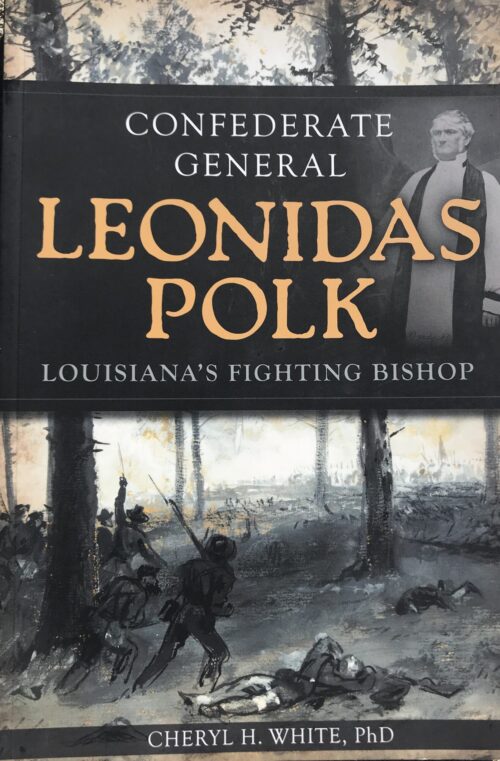 Leonidas Polk is one of the most fascinating figures of the Civil War. Consecrated as a bishop of the Episcopal Church and commissioned as a general into the Confederate army, Polk’s life in both spheres blended into a unique historical composite. Polk was a man with deep religious convictions but equally committed to the Confederate cause. He baptized soldiers on the eve of bloody battles, administered last rites and even presided over officers’ weddings, all while leading his soldiers into battle.
Leonidas Polk is one of the most fascinating figures of the Civil War. Consecrated as a bishop of the Episcopal Church and commissioned as a general into the Confederate army, Polk’s life in both spheres blended into a unique historical composite. Polk was a man with deep religious convictions but equally committed to the Confederate cause. He baptized soldiers on the eve of bloody battles, administered last rites and even presided over officers’ weddings, all while leading his soldiers into battle. -
 The commander of the three-hundred-wagon Union supply train never expected a large ragtag group of Texans and Native Americans to attack during the dark of night. But Brigadier Generals Richard Gano and Stand Watie defeated the unsuspecting Federals in the early morning hours of September 19, 1864, at Cabin Creek in the Cherokee nation. The legendary Watie, the only Native American general on either side, planned details of the raid for months. His preparation paid off--the Confederate troops captured wagons with supplies that would be worth more than $75 million today.
The commander of the three-hundred-wagon Union supply train never expected a large ragtag group of Texans and Native Americans to attack during the dark of night. But Brigadier Generals Richard Gano and Stand Watie defeated the unsuspecting Federals in the early morning hours of September 19, 1864, at Cabin Creek in the Cherokee nation. The legendary Watie, the only Native American general on either side, planned details of the raid for months. His preparation paid off--the Confederate troops captured wagons with supplies that would be worth more than $75 million today.


